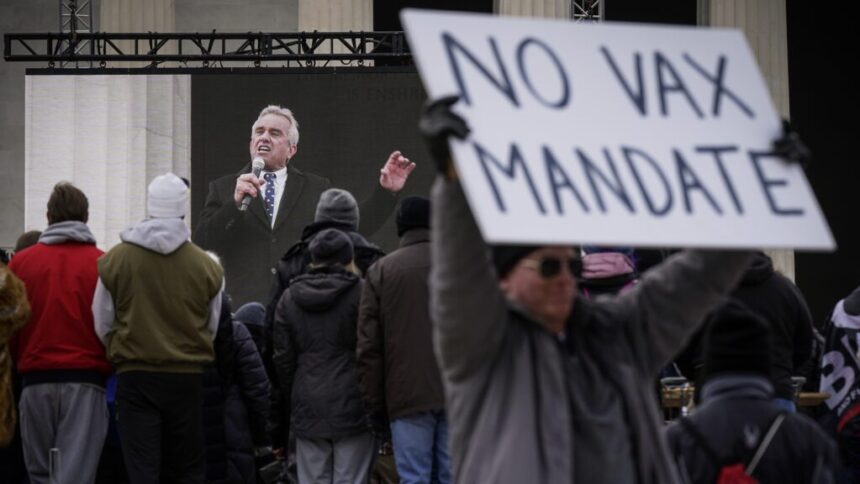Robert F. Kennedy Jr., the former chairman of Children’s Health Defense, made headlines last year when he decided to run for president. Despite taking a leave from his nonprofit organization known for spreading doubt about vaccines, Kennedy is still actively involved in legal battles alongside the group. This has put him in a unique position as a nominee for Secretary of Health and Human Services.
If confirmed by the Senate, Kennedy will have the power to influence the agencies he oversees and steer them towards his priorities. The ongoing legal disputes he is involved in offer insight into his policy interests and the strategies he employs to advance them. Some of the cases he and his group are pursuing include a recent lawsuit against Washington State officials over allegations of unfairly disciplining doctors who expressed skepticism about Covid. At the same time, an appeals court ruled against Kennedy and his group in a censorship case filed against President Biden and top health officials.
Several other cases against federal health agencies, such as the FDA, CDC, and NIH, are still open. These cases primarily focus on requests made under the Freedom of Information Act for records related to vaccine injuries and adverse events. These legal battles reflect the concerns of vaccine skeptics, who question the safety and efficacy of vaccines, especially in light of the Covid pandemic.
Kennedy’s ascent to a prominent public health position could potentially impact these ongoing cases. Some experts believe that his appointment could lead to the withdrawal of certain lawsuits or access to information sought by the group. However, many cases are likely to continue, as they serve as a platform for advocacy groups to challenge vaccine mandates and undermine the credibility of vaccines.
The lawsuits filed by Children’s Health Defense not only have legal implications but also play a symbolic role in the anti-vaccine movement. They are used to rally support, raise funds, and portray the group as whistleblowers fighting against government overreach. Despite the legal setbacks, Kennedy’s followers remain steadfast in their beliefs and continue to promote anti-vaccine narratives.
The release of documents and records obtained through these legal battles could potentially fuel anti-vaccine campaigns and misinformation. However, transparency and access to information are crucial in a democratic society, regardless of the motives behind the requests. Public health agencies must balance the need for transparency with the potential misuse of information by anti-vaccine groups.
As Secretary of Health and Human Services, Kennedy would have the authority to shape the transparency and responsiveness of health agencies. How he chooses to handle data disclosure and public records requests could have far-reaching consequences for public health policy and trust in government institutions. While there is an opportunity for Kennedy to prioritize public health interests, his history of promoting vaccine misinformation and criticizing the pharmaceutical industry may influence his approach to the role.
In conclusion, Robert F. Kennedy Jr.’s involvement in legal battles and advocacy for vaccine skepticism has drawn attention to the intersection of public health, policy, and personal beliefs. His potential appointment as Secretary of Health and Human Services raises questions about the impact of his views on vaccines and public health policy. As the legal battles continue and new challenges arise, the role of transparency, accountability, and trust in government actions becomes increasingly important in shaping public health outcomes.







